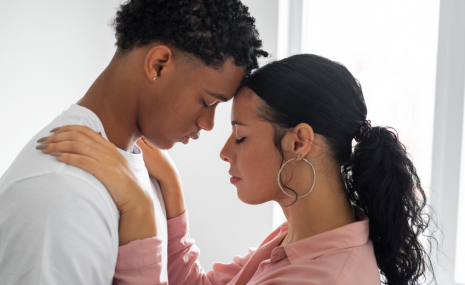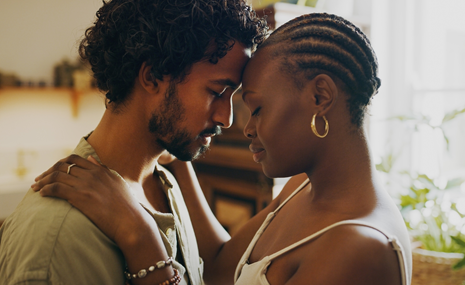Baring Souls: The Strength in Being Vulnerable

In relationships, projecting an image of strength often hides the innate need for vulnerability. This emotional transparency involves the rejection of the protective layers built over time. In this exploration, we look into the significance of vulnerability in relationships, understanding when to embrace it, and recognizing situations where caution is warranted.
The Essence of Vulnerability and Its Role in Relationships
Find your soulmate on AfroRomance










Emotional vulnerability serves as a cornerstone for any meaningful relationship. It involves the courage to express inner feelings, share fears, and reveal insecurities—a process of being one's true self within a secure space. Failure to be vulnerable can block communication, trust, and intimacy, crucial elements for relationship growth.
Vulnerability Across Relationship Stages
Whether in the initial stages of dating or in a mature partnership, vulnerability plays a pivotal role. At the outset, when guardedness is common, being vulnerable becomes the first barrier to overcome together. As the relationship deepens, the challenges and quirks of a partner's personality emerge. Navigating these require mutual support, making vulnerability essential in fostering a safe space for emotional expression.
The Paradox of Vulnerability: Rewards and Risks
While vulnerability may feel like taking a leap of faith, its rewards often outweigh the risks. Trusting someone enough to gauge their sensibilities transforms vulnerability into a profound level of emotional intimacy. Yet, the fear of potential negative reactions—laughter, criticism, or disgust—persists. Past experiences may amplify this fear, but pacing vulnerability according to the level of intimacy shared is crucial to building a healthy connection.
Navigating Barriers to Vulnerability
Overcoming barriers to vulnerability involves self-reflection and incremental sharing. Understanding one's emotions, reactions, and relational approach is foundational. Expressing genuine feelings for a partner gradually, through notes or conversations, contributes to establishing vulnerability positively. Accepting imperfections and recognizing that rejection is not a catastrophic end fosters a healthy approach to vulnerability.
Reacting to Your Partner's Vulnerability
Dealing with a partner's vulnerability necessitates patience, love, and attentive listening. Encouraging openness involves asking deep, open-ended questions and creating a supportive environment. Practicing active listening, deciphering subtext, and responding empathetically contribute to building trust. Consistent empathy during moments of vulnerability strengthens the foundation of a healthy relationship.
Ultimately, emotional vulnerability forms the bedrock of a relationship. It is the willingness to be seen and known for who you truly are, fostering connection and love. In the absence of vulnerability, one remains closed off from new connections, preventing the possibility of genuine emotional bonds.
Responses to "Baring Souls: The Strength in Being Vulnerable"
Be the first to leave a comment
You must be logged in to post a comment.




























































































